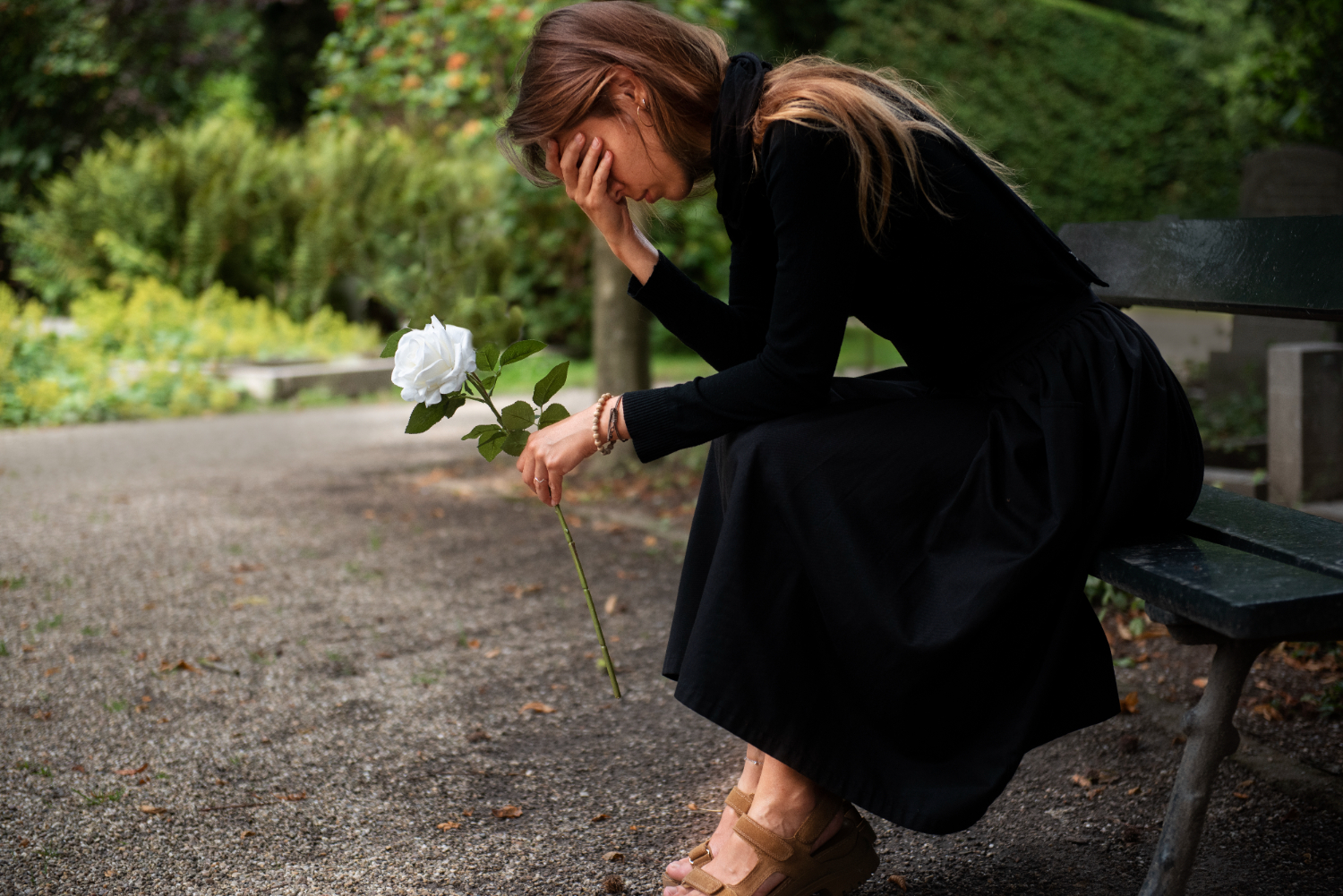The Unexpected Triggers—When Grief Hides in the Smallest Moments

Grief is a shape-shifter. It doesn’t always show up in the big, obvious ways. Sometimes, it hides in the smallest moments—quiet, sneaky, catching me off guard. A song on the radio. The smell of rain. A child’s laugh in the grocery store. The way the sunlight filters through the window, just like it did on a day when my child was here. I can be having a perfectly normal day, and then suddenly, grief is there. Strong, sharp, and impossible to ignore. It feels like stepping into a memory, only to be yanked back into the present where everything has changed. And no one else can see it
Table of Contents
- When the World Keeps Moving
- Learning to Ride the Wave
- Learning Tools: Navigating Grief Triggers with Compassion
- 1. The “Pause and Breathe” Method
- 2. The Grounding Technique
- 3. The Safe Space Visualization
- Guided Meditation: Meeting Grief with Gentle Acceptance
When the World Keeps Moving
In those moments, I feel so separate from the world around me. I look around and see life continuing—people laughing, talking, living. And I am standing still, caught in a moment only I can feel. Sometimes, I try to push it down. I take a deep breath, force a smile, pretend I am okay. Other times, I let the wave wash over me, tears falling quietly while I stand in the cereal aisle or sit in the car. The hardest part is knowing there is no way to avoid these triggers. I cannot predict them. I cannot prepare for them. I can only learn how to survive them.
Learning to Ride the Wave
Maybe I don’t need to fight these moments. Maybe I can learn to ride them, to let them come and go without resisting. Maybe grief is not trying to hurt me. Maybe it is just reminding me of love—of the life I had, of the moments that mattered, of the connection that is still real, even if it feels painful. Maybe I can learn to meet these moments with gentleness, rather than fear. Maybe the goal is not to avoid the triggers, but to soften into them, knowing they will pass.
Learning Tools: Navigating Grief Triggers with Compassion
Grief triggers are unavoidable, but they don’t have to control you. These tools will help you move through unexpected waves of grief with more ease and self-kindness.
1. The “Pause and Breathe” Method
When a grief trigger hits, pause. Take a slow, deep breath. Place your hand on your heart. Whisper to yourself:
“This is a wave. I can let it wash over me without drowning.”
“I am safe. I am here. This feeling will pass.”
2. The Grounding Technique
When you feel overwhelmed by a trigger, use your senses to ground yourself:
Name 5 things you can see.
Name 4 things you can touch.
Name 3 things you can hear.
Name 2 things you can smell.
Name 1 thing you can taste.
This helps bring you back to the present moment, allowing the wave of grief to move through you rather than overtake you.
3. The Safe Space Visualization
Imagine a place where you feel safe—real or imagined.
Close your eyes and picture yourself there.
Let this space hold you until the grief softens.
Guided Meditation: Meeting Grief with Gentle Acceptance
Find a quiet place. Close your eyes. Take a deep breath. Imagine yourself standing on the shore of a vast ocean. The waves move gently, some small, some larger, but all passing.
When a wave of grief comes, you do not run from it. You do not resist it. You let it rise, wash over you, and recede.
You remain steady, grounded, held by the earth beneath your feet.
You whisper to yourself:
“I am allowed to feel this.”
“I do not need to fear grief. It is part of my love.”
“This wave will pass. I will still be here.”
Stay in this space as long as you need. Let yourself be soft in the presence of grief.
When you are ready, take a deep breath, gently open your eyes, and return to the present moment.
Grief may come in waves, but you are learning to float. And that is enough.
Created By: Bethany Orrick
Recommended Blogs
 Blogs
Blogs The Gift of Small Moments—Finding Light in the Midst of Grief
The Gift of Small Moments—Finding Light in the Midst of Grief Grief has a way of shrinking the world.In the...
 Blogs
Blogs When the World Moves On—Feeling Left Behind in Grief
When the World Moves On—Feeling Left Behind in Grief Life has a way of moving forward, even when you feel...
 Blogs
Blogs When the Grief is Too Much—Learning to Take a Break from the Pain
When the Grief is Too Much—Learning to Take a Break from the Pain Some days, grief is everywhere.It’s in the...
 Blogs
Blogs The Ache of Milestones—When Time Moves Forward Without Them
The Ache of Milestones—When Time Moves Forward Without Them Another birthday approaches. Another milestone passes.I find myself caught between two...
 Blogs
Blogs The Holidays Without Them—When Joy and Grief Collide
The Holidays Without Them—When Joy and Grief Collide The holidays are here, and the world feels different. Everywhere I look,...
 Blogs
Blogs The Unexpected Triggers—When Grief Hides in the Smallest Moments
The Unexpected Triggers—When Grief Hides in the Smallest Moments Grief is a shape-shifter. It doesn’t always show up in the...